What Awaits You With Composite Bonding
Composite bonding is one of the most requested treatments in cosmetic dentistry. It’s popular because it improves smiles without major drilling or surgery. Many patients in search of subtle yet effective results turn to Composite Bonding Bexleyheath for professional guidance. But what can we expect from getting composite bonding from a professional dentist?
The Initial Consultation
Your journey starts with a conversation between you and your dentist. They’ll examine your teeth, ask about your smile goals, and suggest whether bonding is a good match. This step is important because not all dental concerns can be fixed with bonding alone. During the consultation, you’ll also get an idea of the costs and the timeline involved. Some people might even be able to schedule treatment for the same day, depending on the complexity of their case. Having clear expectations upfront helps you feel at ease.
The Procedure Process

The actual treatment is straightforward and doesn’t usually require anesthesia. Your dentist prepares the surface of your tooth, applies a resin that matches your natural shade, and then shapes it carefully. A special light hardens the material in minutes. After hardening, the dentist polishes the bonded area so it blends seamlessly with your surrounding teeth. The whole process typically takes less than an hour for one tooth. Patients often leave the clinic surprised by how simple it all feels.
Immediate Results You Can See
One of the biggest advantages of bonding is that the results are instant. Chips, cracks, and gaps look improved the moment you step out of the chair. That quick turnaround makes bonding appealing compared to other cosmetic options that take weeks. The resin is also customizable, so your dentist can adjust the shape or shade as needed. This flexibility means you don’t have to settle for something that doesn’t feel right. Walking out with a smile you like immediately boosts confidence.
Aftercare and Longevity
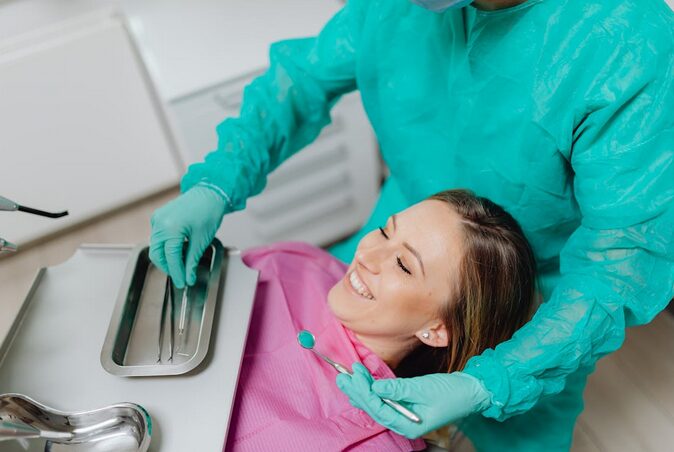
Bonded teeth need regular care just like natural ones. Brushing, flossing, and routine check-ups all help keep them in good shape. Avoiding habits like nail-biting or chewing ice makes the bonding last longer. Over time, bonding may stain or wear down faster than treatments like veneers. That doesn’t mean it’s fragile—it just means occasional touch-ups might be necessary. Patients usually find the upkeep manageable compared to more permanent solutions.
Why Professional Experience Matters
The skill of your dentist plays a huge role in how natural the bonding looks. A professional with experience in cosmetic dentistry can match shades, smooth out imperfections, and create a smile that feels authentic. Think of it like having a sculptor for your teeth. Choosing the right dentist also gives you peace of mind. If you ever need adjustments or repairs, you’ll know who to turn to. Building that relationship with a skilled professional makes the process less stressful.
Composite bonding is a simple yet powerful treatment that can transform your smile in just one visit. From consultation to aftercare, knowing what to expect helps patients feel more confident about their decision. With the right dentist, the results can be natural, long-lasting, and rewarding.…

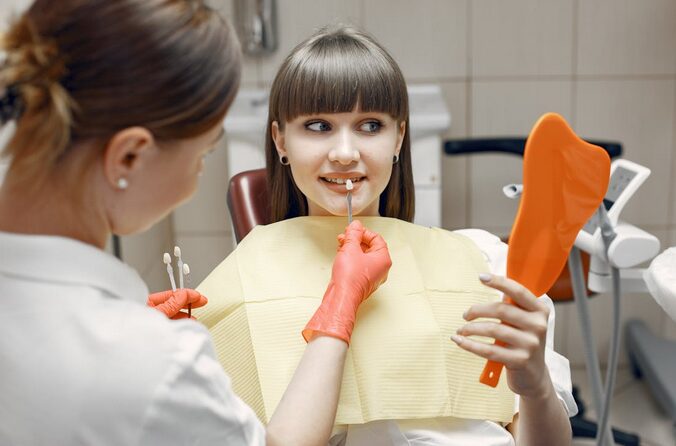

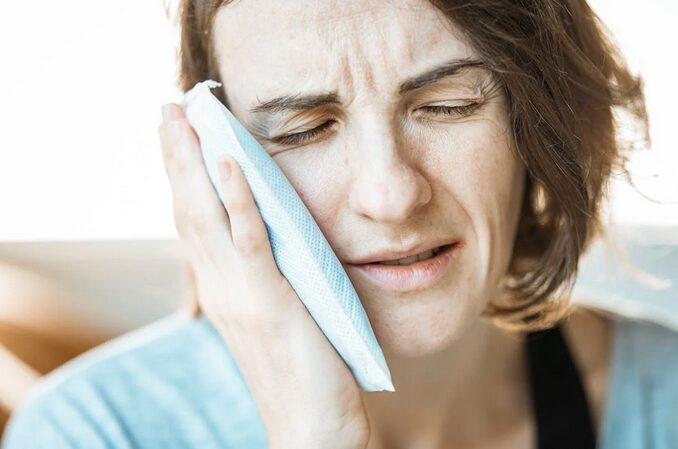






 What you eat has a direct impact on the health of your lungs. A diet rich in fruits and vegetables is always a good idea. Still, some specific foods can help support respiratory health. For example, ginger has anti-inflammatory properties help soothe sore throats and ease congestion. Garlic is another excellent option as it contains natural antibiotics that can help fight off respiratory infections. In general, you want to avoid foods high in fat and sugar as they can contribute to weight gain and worsen respiratory problems like asthma and COPD.
What you eat has a direct impact on the health of your lungs. A diet rich in fruits and vegetables is always a good idea. Still, some specific foods can help support respiratory health. For example, ginger has anti-inflammatory properties help soothe sore throats and ease congestion. Garlic is another excellent option as it contains natural antibiotics that can help fight off respiratory infections. In general, you want to avoid foods high in fat and sugar as they can contribute to weight gain and worsen respiratory problems like asthma and COPD.
 Air pollution is a major problem in many cities around the world. But, even if you don’t live in an urban area, you’re still exposed to air pollution daily. Things like car exhaust and cigarette smoke can contribute to poor air quality and worsen respiratory problems. You can avoid air pollution by staying indoors on days when the air quality is poor. You should also keep your windows closed and use an air purifier in your home. But ultimately, you need to go back to nature once in a while and refresh your lungs.
Air pollution is a major problem in many cities around the world. But, even if you don’t live in an urban area, you’re still exposed to air pollution daily. Things like car exhaust and cigarette smoke can contribute to poor air quality and worsen respiratory problems. You can avoid air pollution by staying indoors on days when the air quality is poor. You should also keep your windows closed and use an air purifier in your home. But ultimately, you need to go back to nature once in a while and refresh your lungs.
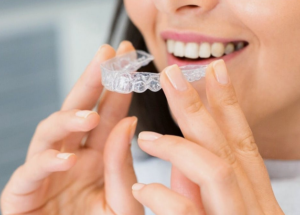 The first step to taking care of your Invisalign is to clean your trays properly. You should start by rinsing your trays with warm water and gently brushing them with soft soap. Make sure you do not use abrasive cleaners as they can damage the material of your trays. Once you have brushed them gently with the soap, rinse them with warm water and dry them with a soft cloth. Though simple, this process will help remove any plaque or bacteria that may have built up on your trays during the day.
The first step to taking care of your Invisalign is to clean your trays properly. You should start by rinsing your trays with warm water and gently brushing them with soft soap. Make sure you do not use abrasive cleaners as they can damage the material of your trays. Once you have brushed them gently with the soap, rinse them with warm water and dry them with a soft cloth. Though simple, this process will help remove any plaque or bacteria that may have built up on your trays during the day. Many users think that since Invisalign is removable, they can eat and drink whatever they want while wearing them. However, this is not the case, as certain foods and drinks can damage your trays. For instance, drinking coffee or tea can cause staining on your trays, while eating sticky or hard foods can crack or break them. Therefore, avoiding eating or drinking anything while you have your Invisalign, except for water, is best.
Many users think that since Invisalign is removable, they can eat and drink whatever they want while wearing them. However, this is not the case, as certain foods and drinks can damage your trays. For instance, drinking coffee or tea can cause staining on your trays, while eating sticky or hard foods can crack or break them. Therefore, avoiding eating or drinking anything while you have your Invisalign, except for water, is best.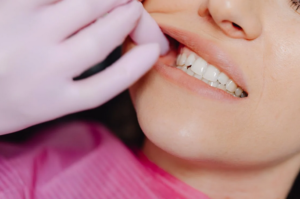 Last but not least, one of the most essential tips for taking care of your Invisalign is to visit your orthodontist regularly. It is because they will be able to check your treatment progress and ensure that everything is going according to plan. Additionally, they will be able to answer any questions or concerns you may have about your Invisalign. Not only that, but they can also give you tips on adequately taking care of your Invisalign to achieve the best results possible.
Last but not least, one of the most essential tips for taking care of your Invisalign is to visit your orthodontist regularly. It is because they will be able to check your treatment progress and ensure that everything is going according to plan. Additionally, they will be able to answer any questions or concerns you may have about your Invisalign. Not only that, but they can also give you tips on adequately taking care of your Invisalign to achieve the best results possible.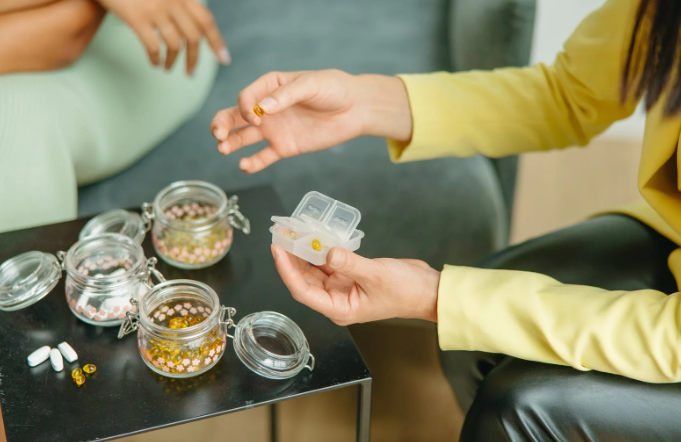
 One of the most significant benefits of thermogenic fat burner pills is that they can help to increase your metabolism rate. Metabolism is the process by which your body burns calories, and a higher metabolism rate means that you’ll be able to burn more calories throughout the day.If you’re looking to lose weight, increasing your metabolism rate is a great way to do it. Thermogenic fat burners work by increasing your body temperature increases your metabolism rate.
One of the most significant benefits of thermogenic fat burner pills is that they can help to increase your metabolism rate. Metabolism is the process by which your body burns calories, and a higher metabolism rate means that you’ll be able to burn more calories throughout the day.If you’re looking to lose weight, increasing your metabolism rate is a great way to do it. Thermogenic fat burners work by increasing your body temperature increases your metabolism rate. Needless to say, the most noticeable benefit of thermogenic fat burners is the boost in energy levels that they provide. If you’re struggling to get through the day or feel fatigued all the time, thermogenic fat burners can help.
Needless to say, the most noticeable benefit of thermogenic fat burners is the boost in energy levels that they provide. If you’re struggling to get through the day or feel fatigued all the time, thermogenic fat burners can help.
 One of the best ways to reduce hunger and appetite is to eat enough protein. Protein helps to regulate appetite by increasing levels of satiety hormones. In addition, protein takes longer to digest than other nutrients, enabling you to feel fuller for longer. Aim to eat at least 20-30 grams of protein per meal. Good protein sources include lean meats, fish, poultry, eggs, legumes, and dairy.
One of the best ways to reduce hunger and appetite is to eat enough protein. Protein helps to regulate appetite by increasing levels of satiety hormones. In addition, protein takes longer to digest than other nutrients, enabling you to feel fuller for longer. Aim to eat at least 20-30 grams of protein per meal. Good protein sources include lean meats, fish, poultry, eggs, legumes, and dairy. When you feel hunger pangs coming on, try to reach for a filling snack instead of something sugary or empty calories. Nuts, seeds, yogurt, and fruit are great examples of snacks that can help tide you over until your next meal.
When you feel hunger pangs coming on, try to reach for a filling snack instead of something sugary or empty calories. Nuts, seeds, yogurt, and fruit are great examples of snacks that can help tide you over until your next meal.